Clinton v Trump: Five Twitter takeaways
- Published
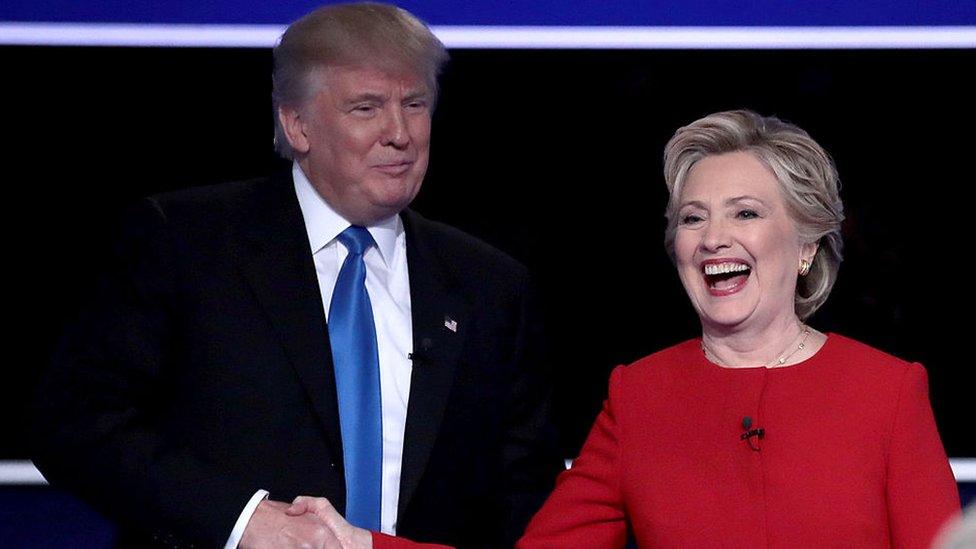
Clinton and Trump after the debate
It was one of the most anticipated political debates of modern times - and the hype was only amplified by social media.
But what did we actually learn from the millions of tweets sent about Monday night's presidential debate?
The raw numbers
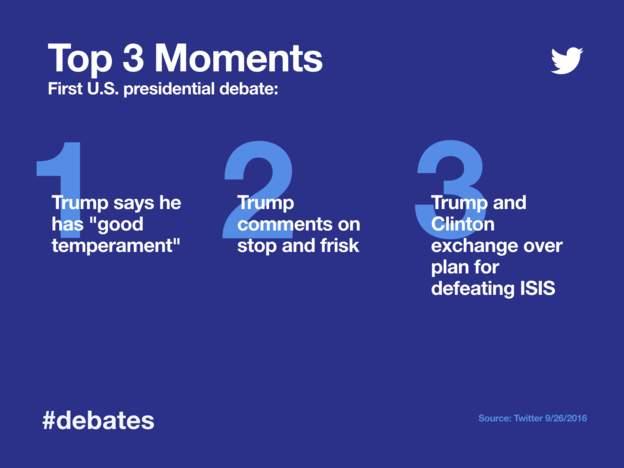
On Twitter the debate racked up numbers more commonly seen during international sporting events or shocking breaking news. Nearly five million tweets were sent out using hashtags #DebateNight and #Debates2016.
To put that into perspective, that's about 20 times the comparable number sent during the first big showdown of the UK 2015 general election - considered at the time to be a massive online political event.
And one candidate dominated the majority of the conversation: Twitter's communications team estimated that 62% of tweets were about Trump.
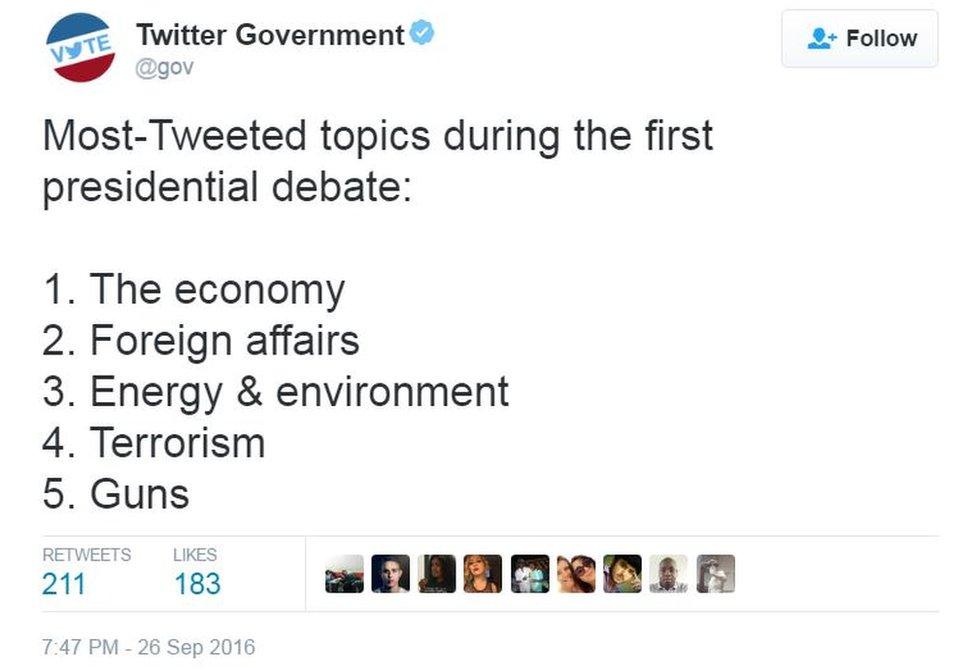
The phrases that cut through
Fairly early on, Hillary Clinton went on the attack, describing Donald Trump's economic plan as "Trumped up trickle down" - a reference to proposed tax cuts for the wealthy. The phrase immediately spiked up, reaching the list of Twitter's worldwide trends.
Clinton's supporters seized on the idea of a businessman boosting the rich, but others called the formulation clunky. "Terrible phrase" commented one Trump supporter, external, and some reaction ranged from gentle ribbing to outright mocking.
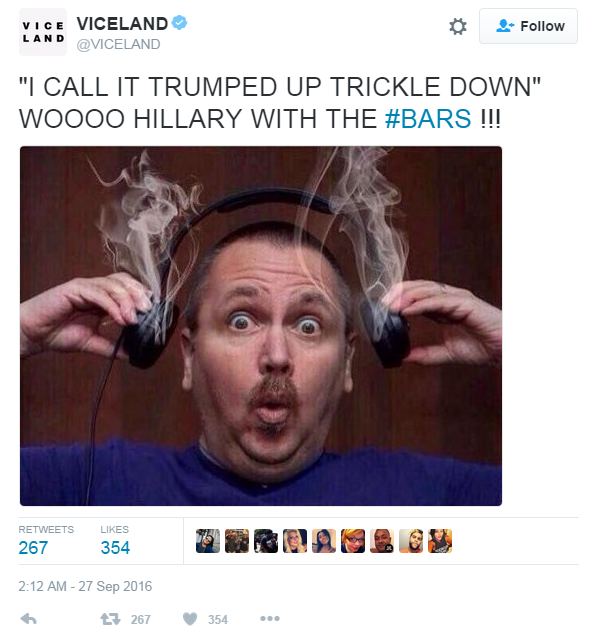
Meanwhile Trump found himself on the receiving end of jokes and criticism over his focus on Mexico and China.
It's an ongoing theme of his campaign that American jobs are being shipped to foreign countries - and arguably one of the chief reasons for his success so far.
But many of opponents rolled their eyes at his obsession with trade deals and those two countries in particular.
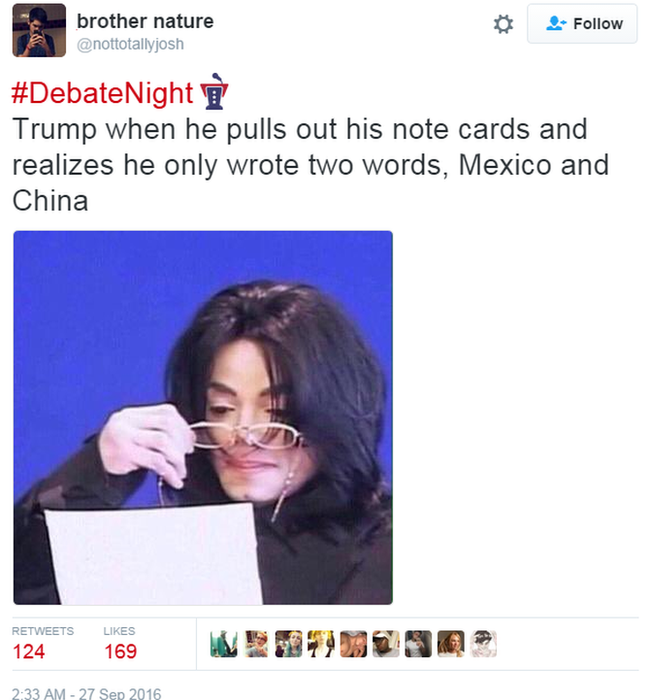
The 'spin room' has moved online
It used to be that impressions of American debate winners and losers could be shaped afterwards in the "spin room" - where campaign surrogates talk to the media and put forth their own takes on what happened on stage.
Both campaigns are acutely aware of how social media has changed the game, external - in some sense, the spin room has moved online, and now happens in real time.
So while the candidates tussled on stage, their social media accounts continued to be active - shooting out messages related to the debate topics and jabs at the other side:
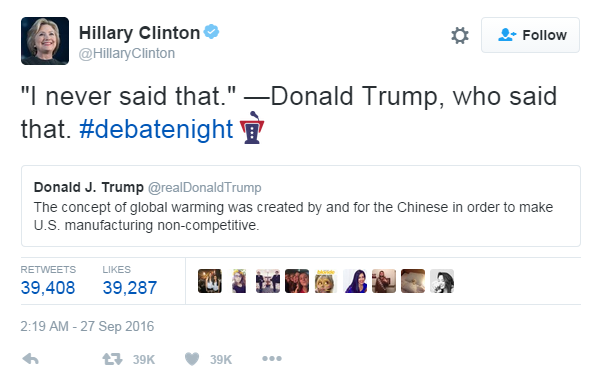
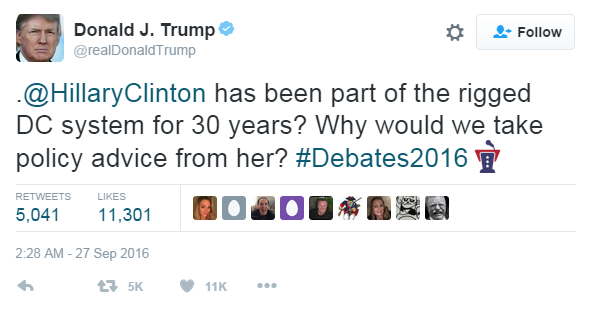
Official campaign messages such as the above were among the most retweeted ones under the main debate hashtags - so trickle-down social media seems to be having an impact.
The moderator
More than 400,000 tweets mentioned the moderator, veteran NBC journalist Lester Holt. Some urged him to leap in during stretches where he appeared content to let the candidates go after each other.
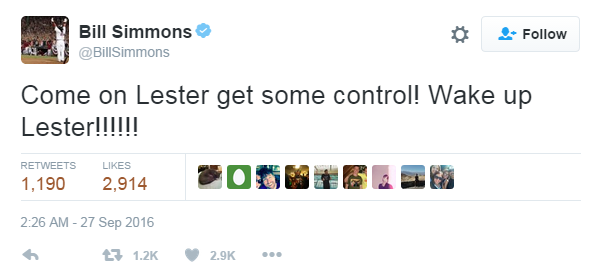
But his fact checking at points during the debate earned some cheers - for instance when he pushed Trump on his previous support of the Iraq War.
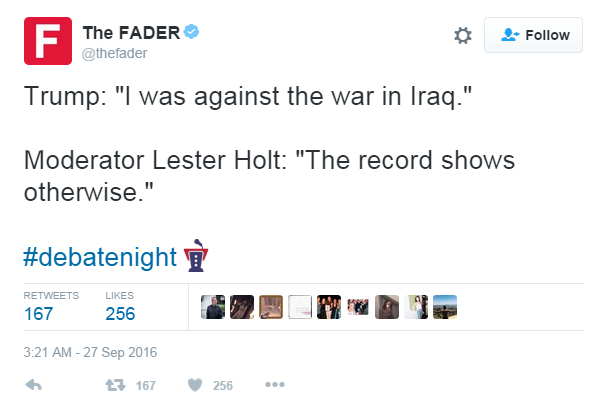
Earlier this month, in back-to-back televised interviews, moderator Matt Lauer came under attack, external for not being tough enough with the candidates.
Holt may have hoped to escape similar headlines, but soon after leaving the debate stage Trump took to his favourite mode of communication to lament why Clinton was not challenged, external on emails, the Clinton Foundation or Benghazi.
It's not all serious
During the course of the evening #UnlikelyDebateGuests became another trending hashtag, and while there was plenty of political point scoring, there was also some light relief.
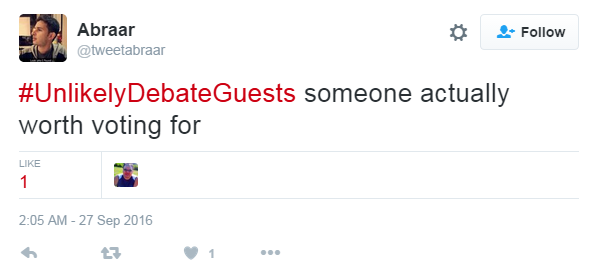
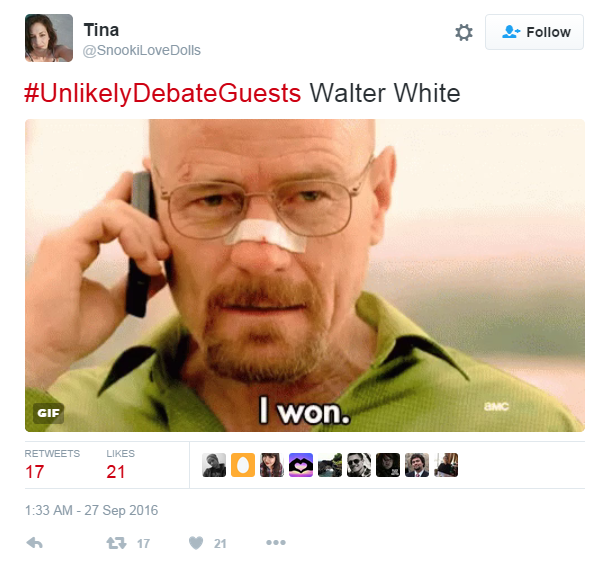
Blog by Mike Wendling, external
NEXT STORY: How a single tweet sparked a fundraising campaign
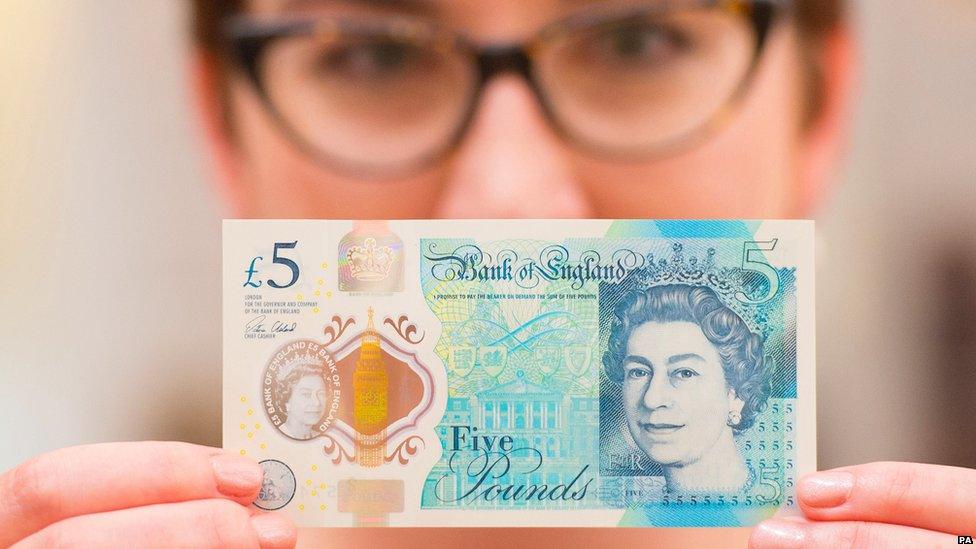
A social media campaign in the UK is inspiring people to donate their first new £5 notes to charity.READ MORE
You can follow BBC Trending on Twitter @BBCtrending, external, and find us on Facebook, external. All our stories are at bbc.com/trending.